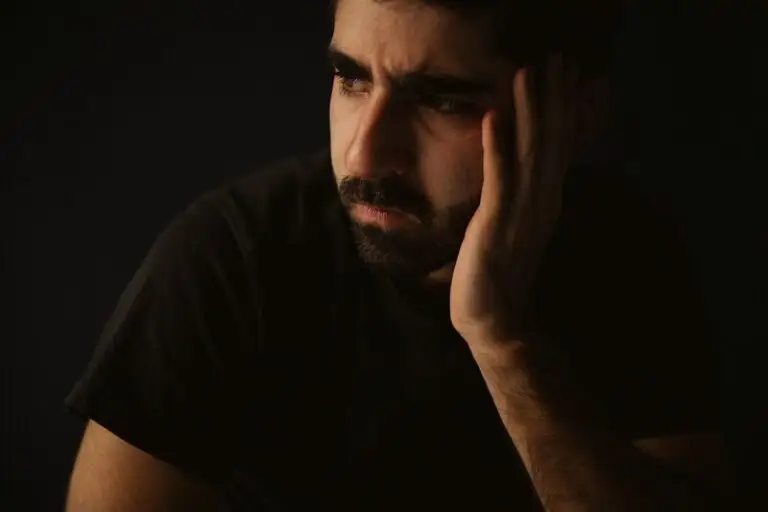Why You Can’t ‘Do’ Mindfulness Wrong (Even If You Think You Are)
If you’ve ever sat down to practise mindfulness and thought, “I’m terrible at this,” you’re not alone. Many people begin their mindfulness journey with the idea that they need to empty their mind, stop thinking, or instantly feel peaceful. When those things don’t happen, frustration creeps in. But here’s the truth: you can’t do mindfulness wrong. Even when your mind wanders, even when you feel restless, and even when it seems pointless—you’re still practising.
In this post, we’ll explore why mindfulness is less about perfection and more about presence. We’ll look at common misconceptions, what mindfulness really means, and how to let go of the idea of “getting it right.”
The Myth of ‘Perfect’ Mindfulness
Mindfulness has become a buzzword in recent years, often packaged with images of serene people meditating in silence on a mountaintop. No wonder so many of us believe we’re “failing” if our practice doesn’t look or feel like that.
But mindfulness isn’t about creating a flawless state of calm. At its heart, mindfulness is simply the act of paying attention to what’s happening right now—without judgement. That means if your mind is full of thoughts, your body feels restless, or you’re distracted by noises outside, that’s not failure. It’s just reality. And being present with that reality is mindfulness.
Why Wandering Minds Still Count
One of the biggest myths about mindfulness is that you’re supposed to stop thinking. In fact, noticing your thoughts is part of the practice. When your mind wanders (and it will), the moment you realise it has wandered, you’re already being mindful. You’ve noticed. You’ve become aware. That small act of awareness is the essence of mindfulness.
Think of it like going to the gym. Each time you notice your mind has drifted and gently bring it back to the present, it’s like lifting a weight. You’re building the muscle of awareness. So instead of seeing your wandering mind as a failure, recognise it as training.
Mindfulness Is About Practice, Not Performance
Here’s something many beginners forget: mindfulness isn’t a performance. You don’t need to “achieve” anything in your practice. There’s no gold star for sitting perfectly still or for having an empty mind. What matters is showing up, however messy it feels.
Some days you might feel calm and grounded. Other days you might feel distracted, bored, or even irritated. Both experiences are valid. Both are opportunities to practise noticing what’s here without judgement.
By letting go of the need to perform, you free yourself from the pressure of “doing it right” and instead open up to the real purpose of mindfulness—developing awareness, compassion, and presence in everyday life.
Everyday Mindfulness Is Already Happening
Here’s another reassuring truth: you’ve probably already practised mindfulness without realising it. Have you ever noticed the warmth of a cup of tea in your hands? Or taken a deep breath after a long day and felt your shoulders drop? Or listened fully to a piece of music without distraction?
Those are all mindful moments. They show that mindfulness isn’t something exotic or difficult—it’s simply a way of paying attention. And because you already know how to do it, you can’t really get it wrong.
The Role of Self-Compassion
Many people judge themselves harshly when they feel they’re not good at mindfulness. But mindfulness without self-compassion can easily turn into self-criticism. If you catch yourself thinking, “I’m rubbish at this,” try noticing that thought too. That’s mindfulness in action.
Then, add a dose of kindness. You might say to yourself, “It’s normal for my mind to wander. I’m learning. This is part of the process.” In doing so, you shift the practice from striving for perfection to cultivating acceptance.
What Science Says About ‘Messy’ Practice
Research in psychology and neuroscience backs this up: even short, imperfect sessions of mindfulness can have benefits. Studies show that practising just a few minutes a day—even when the mind wanders—can reduce stress, improve focus, and support emotional resilience.
The key isn’t whether you felt calm or distracted. The key is that you practised. Over time, the brain actually changes in response to mindfulness, developing stronger pathways for attention and emotional regulation. So yes, even those messy sessions “count.”
How to Let Go of the Pressure
If you’re still worried about getting mindfulness wrong, here are a few gentle reminders:
-
Redefine success. Success in mindfulness isn’t about reaching a perfect state. It’s about noticing, again and again, what’s happening.
-
Start small. Even one minute of mindful breathing or noticing your surroundings is enough.
-
Be curious. Instead of trying to control your experience, approach it with curiosity. What do you notice in this moment?
-
Trust the process. Mindfulness works through repetition and patience, not instant results.
-
Remember kindness. Treat yourself like you would a friend learning something new.
Mindfulness Beyond the Cushion
Mindfulness doesn’t just happen in meditation. You can practise it while walking, cooking, or washing the dishes. Bringing your attention fully to these everyday moments reminds you that mindfulness is about presence, not perfection.
So, the next time you think, “I’m doing it wrong,” pause. Notice that thought. Smile at it. And remember—you’ve just been mindful.
Final Thoughts
You can’t do mindfulness wrong. The practice isn’t about silencing your mind, being calm all the time, or getting rid of distractions. It’s about noticing what’s here, with kindness and curiosity. That means even when it feels messy, even when you’re doubting yourself, you’re still doing it.
Mindfulness is not a test you can fail—it’s a practice you return to, moment by moment. And in that returning lies the real transformation.
Additional Resources
Why not treat yourself to a Meditation Retreat in the beautiful Devon Countryside?
This post may also interest you: Mindfulness for Overthinkers
Best Wishes,
David.
© D. R. Durham, All rights reserved, 2025.




